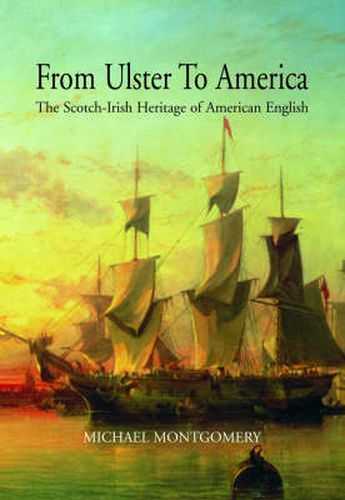Readings Newsletter
Become a Readings Member to make your shopping experience even easier.
Sign in or sign up for free!
You’re not far away from qualifying for FREE standard shipping within Australia
You’ve qualified for FREE standard shipping within Australia
The cart is loading…






This title is printed to order. This book may have been self-published. If so, we cannot guarantee the quality of the content. In the main most books will have gone through the editing process however some may not. We therefore suggest that you be aware of this before ordering this book. If in doubt check either the author or publisher’s details as we are unable to accept any returns unless they are faulty. Please contact us if you have any questions.
Over the last 350 years, Ireland has sent a constant stream of emigrants to North America. Estimates range from six to ten million. Each emigrant spoke English, Irish, or Ulster Scots. Many indeed used two of these tongues. One of the most formative chapters in this fascinating story is the often-overlooked arrival of perhaps 200,000 people from Ulster in the Colonial era, specifically in the sixty years before the American Revolution. This book recounts the lasting impact they made on the development of the English language of the United States from the eighteenth century to the present day. It documents nearly four hundred terms and meanings, each with quotations from both sides of the Atlantic, that were contributed to American English by these eighteenth-century settlers from Ulster. Drawing on letters they sent back to their homeland and on other archival documents associated with their settlement, including local fiction and poetry, it shows that Ulster emigrants and their children, who settled mainly in the American interior, gave as much to regional American English as any other group from the Old World. Its pages contain many pleasant surprises: readers will find terms both instantly recognisable and unfamiliar. The numerous quotations not only bring alive the speech of earlier days on both sides of the Atlantic but also extend our understanding of the culture, mannerisms and life of those pioneering times and, through the spoken and written word, poignantly link the past with the present.
$9.00 standard shipping within Australia
FREE standard shipping within Australia for orders over $100.00
Express & International shipping calculated at checkout
This title is printed to order. This book may have been self-published. If so, we cannot guarantee the quality of the content. In the main most books will have gone through the editing process however some may not. We therefore suggest that you be aware of this before ordering this book. If in doubt check either the author or publisher’s details as we are unable to accept any returns unless they are faulty. Please contact us if you have any questions.
Over the last 350 years, Ireland has sent a constant stream of emigrants to North America. Estimates range from six to ten million. Each emigrant spoke English, Irish, or Ulster Scots. Many indeed used two of these tongues. One of the most formative chapters in this fascinating story is the often-overlooked arrival of perhaps 200,000 people from Ulster in the Colonial era, specifically in the sixty years before the American Revolution. This book recounts the lasting impact they made on the development of the English language of the United States from the eighteenth century to the present day. It documents nearly four hundred terms and meanings, each with quotations from both sides of the Atlantic, that were contributed to American English by these eighteenth-century settlers from Ulster. Drawing on letters they sent back to their homeland and on other archival documents associated with their settlement, including local fiction and poetry, it shows that Ulster emigrants and their children, who settled mainly in the American interior, gave as much to regional American English as any other group from the Old World. Its pages contain many pleasant surprises: readers will find terms both instantly recognisable and unfamiliar. The numerous quotations not only bring alive the speech of earlier days on both sides of the Atlantic but also extend our understanding of the culture, mannerisms and life of those pioneering times and, through the spoken and written word, poignantly link the past with the present.